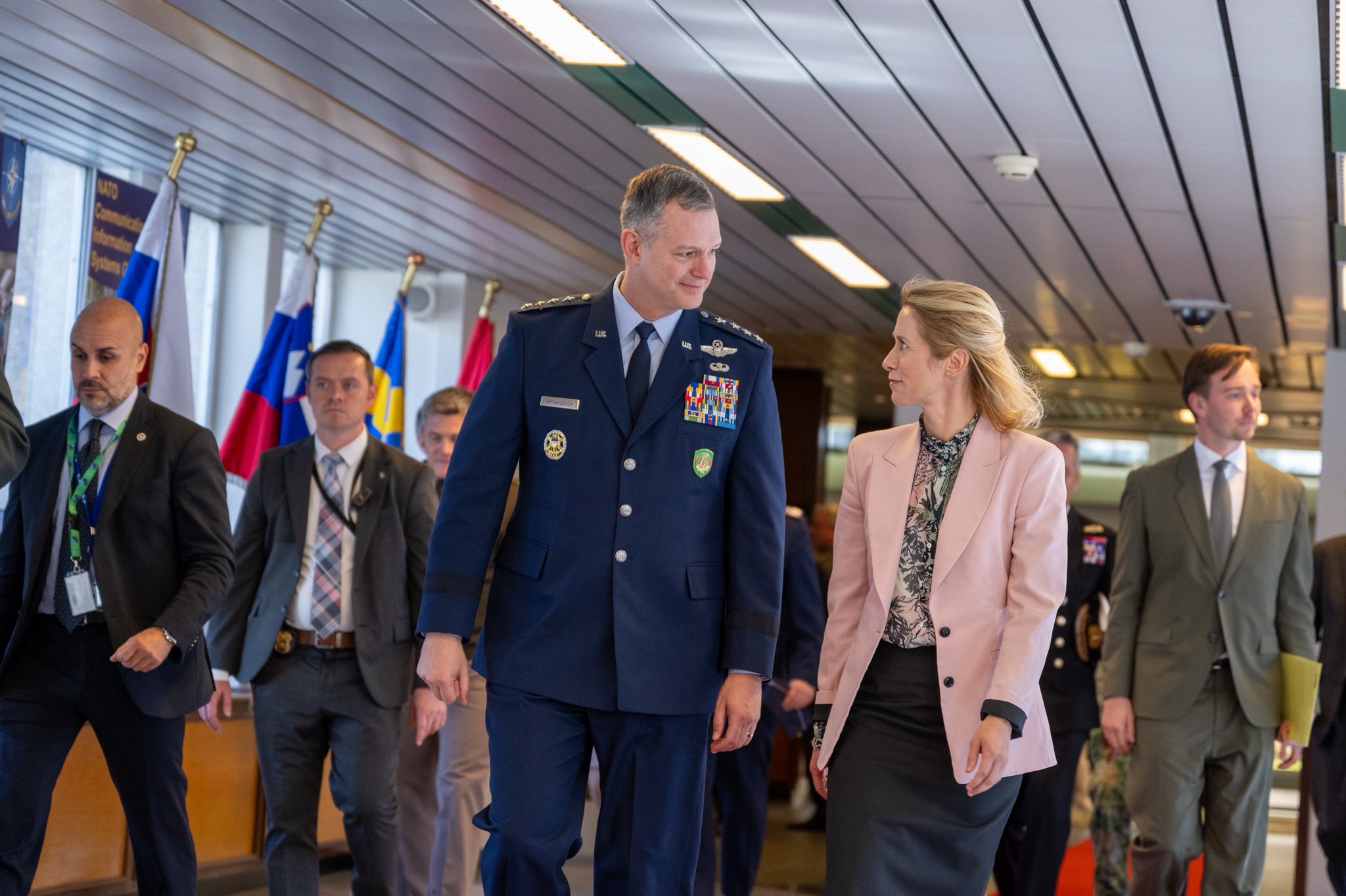NATO’s First Eastern Sentry Scramble Marks Shift in European Defense Posture; Poland Hardens Borders
NATO has scrambled its first fighter jet under Operation Eastern Sentry, the alliance’s new air defense mission designed to deter and intercept Russian drones probing European skies. Meanwhile a French Rafale, backed by a Polish helicopter, had already taken off from Polish soil in response to a potential threat--an alert that ended quickly but carried historic weight.
 |
| Representational Image: IR |
🚨🇵🇱 Once the offensive begins, Poland will march all the way to Moscow. pic.twitter.com/DFgYkz1UNO
— Terror Alarm (@Terror_Alarm) September 15, 2025
“Allies responded fast, correctly, and in a calibrated manner to the potential threat,” said U.S. Air Force General Alexus G. Grynkewich, NATO’s Supreme Allied Commander Europe. “Eastern Sentry has already demonstrated its utility.”
For Poland, the mission is more than a signal, it is a shield. Prime Minister Donald Tusk described the September 10 incursion, which saw 19 Russian drones cross Polish airspace, as “the closest we have been to open conflict since World War Two.”
 |
| Kaja Kellas with General Grynkewich on Sept 16. Via former |
President Karol Nawrocki has since signed a decree authorizing NATO troops to be stationed permanently on Polish soil. More than 40,000 Polish soldiers are now deployed along borders with Belarus and Russia, while Warsaw simultaneously rejected a Chinese request to reopen its frontier with Belarus, citing the “destructive actions of Moscow and Minsk.”
The UK’s commitment to helping @NATO defend every inch of allied territory is unshakeable.@RoyalAirForce Typhoons will join allies and fly air defence missions over Poland as part of Eastern Sentry following Russia's reckless and dangerous drone incursion into Poland last week. pic.twitter.com/wwdtFt1QqD
— Ministry of Defence 🇬🇧 (@DefenceHQ) September 15, 2025
The deployments are scaling fast. Four German Eurofighters are now on standby in northeast Germany. Three Czech helicopters arrived in Poland on September 14. Denmark has pledged F-16s and a frigate, while Spain, the UK, Italy, and Sweden are finalizing contributions.
Britain confirmed that RAF Typhoons will begin air defense patrols in Polish skies “in the coming days.” Prime Minister Keir Starmer called the move “vital in deterring aggression, securing NATO airspace, and protecting our allies.”
The echoes of history are not lost. British pilots flying over Poland comes 85 years after Polish squadrons defended British skies during the Battle of Britain. Then, the motto was “For Your Freedom and Ours.” Now, the solidarity runs in reverse: Europe answering Poland’s call as Russian drones test its borders.
Eastern Sentry is already altering NATO’s defensive geography. The mission gives the alliance rapid-response authority over Poland and Romania, whose own airspace was breached on September 13 by a Russian drone tracked for nearly an hour.
The Romanian defense ministry described it as “irresponsible behavior” by Moscow, while NATO officials view the incursions as deliberate probes of alliance readiness.
Poland has moved beyond immediate defense into longer-term strategy. Warsaw is holding talks with Kyiv on building a joint airport terminal in central Ukraine and developing a Black Sea port--projects aimed at tightening logistical and military integration.
At home, more than 20,000 civilians have signed up for voluntary training, a striking measure of how public fear is turning into grassroots mobilization.
The crisis is also exposing fractures and realignments beyond the battlefield. The EU is debating a ban on Russian tourist entry, driven by Baltic states, Poland, and Finland but resisted by southern members tied to the travel economy.
France and Germany, meanwhile, have joined Eastern Sentry, a sharper military role than Paris and Berlin assumed in the early phases of the Ukraine war.
China, for its part, has misread the moment. A three-hour meeting between Chinese foreign minister Wang Yi and Polish counterpart Radosław Sikorski ended with Warsaw refusing Beijing’s request to reopen its Belarus border, a vital corridor for Chinese goods into Europe.
“This decision is costly for us as well, but necessary,” Polish foreign ministry spokesman Paweł Urbański said.
For observers and alalysts, it seems that Eastern Sentry about drawing a line across NATO’s eastern flank where Warsaw, Vilnius, Riga, Tallinn, and Bucharest set the pace, and where London, Paris, and Berlin are now following.
For Moscow, every drone that strays into NATO airspace risks turning into a wider confrontation. For Europe, the scramble of a single Rafale under Eastern Sentry is proof that “every inch of allied territory” is no longer just rhetoric, but a readiness tested in real time.
